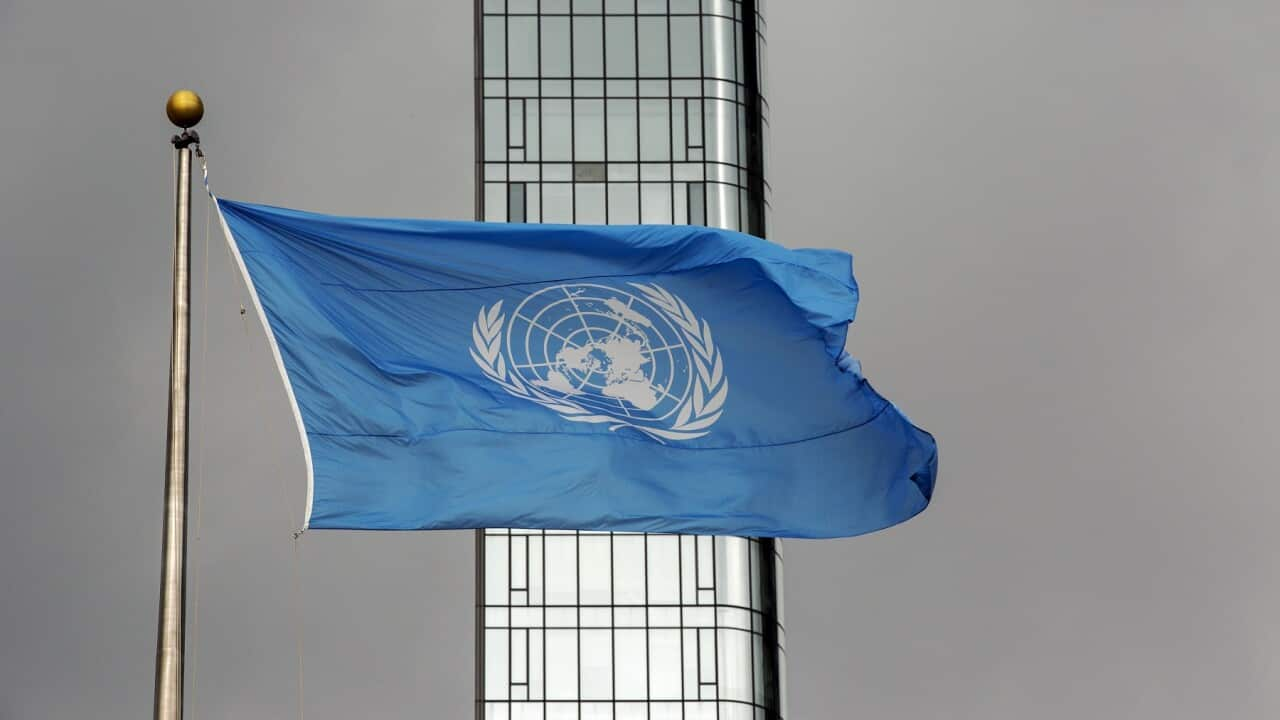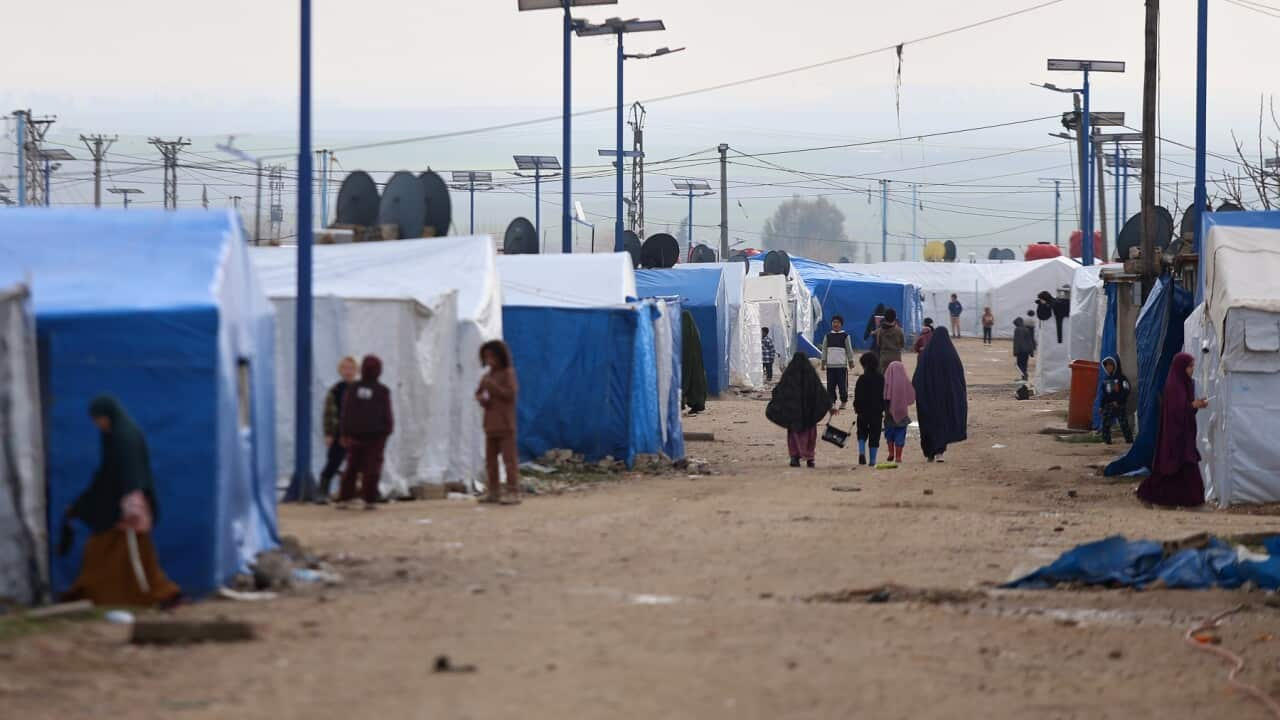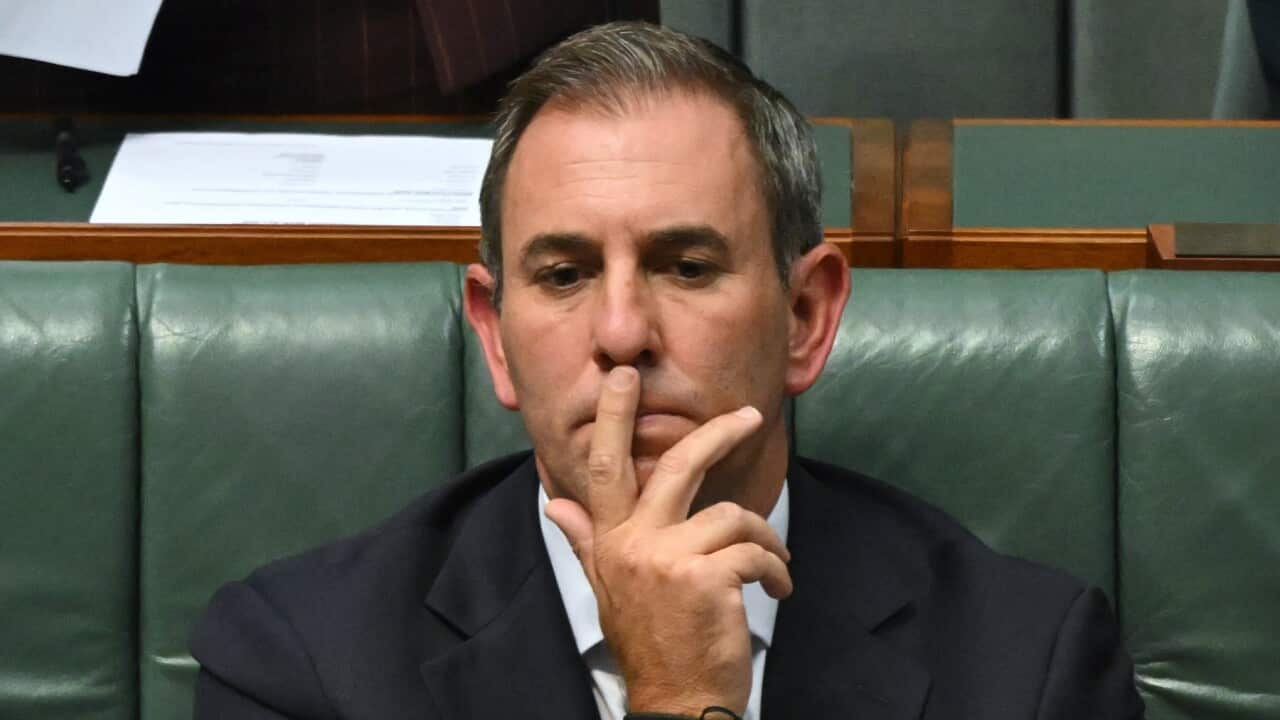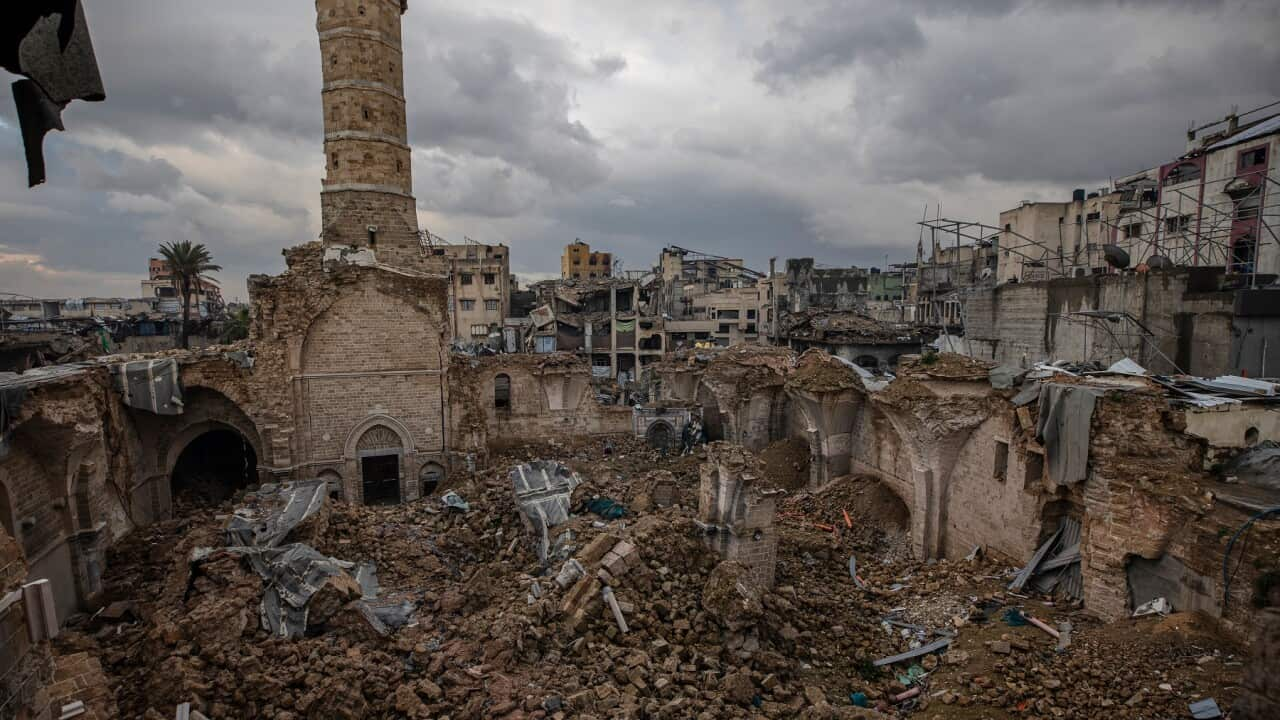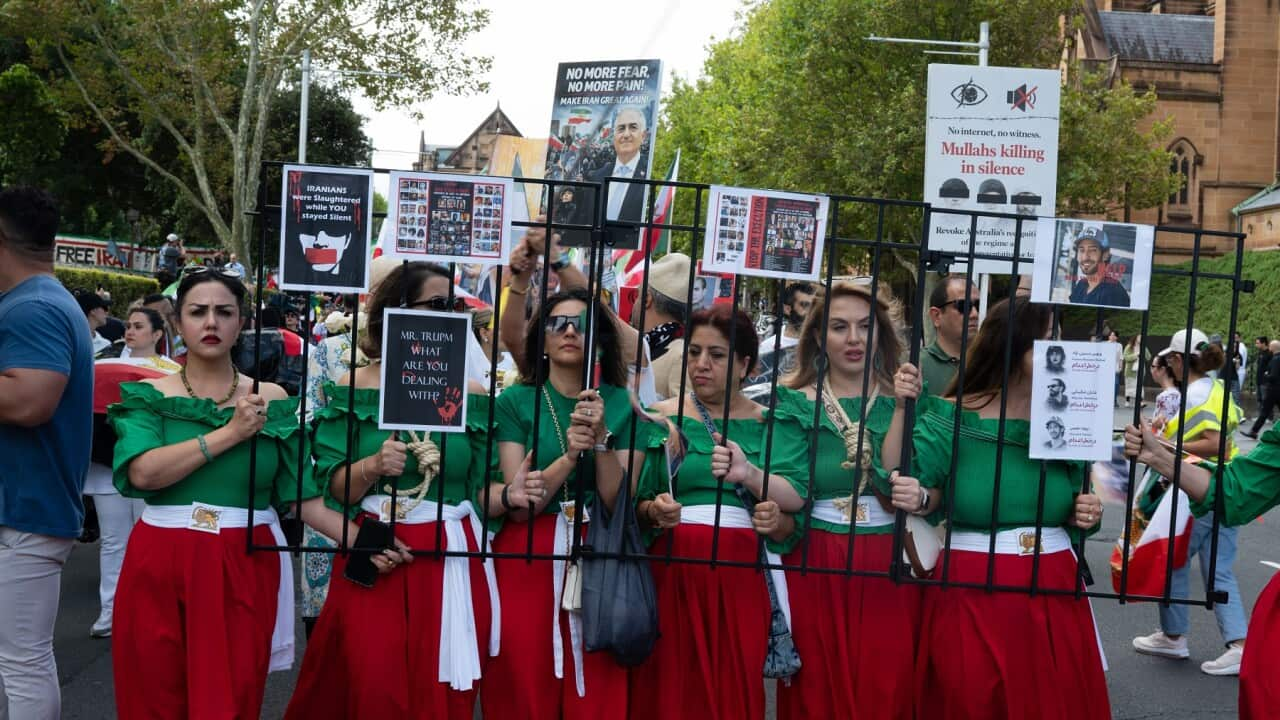Listen to Australian and world news, and follow trending topics with SBS News Podcasts.
TRANSCRIPT:
“At the beginning of the opening of the 80th session last week, I spoke on the theme that will be guiding my Presidency: Better Together. This theme reflects the reality that no single nation, regardless of its size, might, or wealth, can confront the challenges that we face all alone.”
That's Annalena Baerbock, the former Foreign Minister of Germany who is now the newest President of the United Nations General Assembly, sometimes referred to as UNGA.
World leaders will gather in New York for the Assembly, an event that consists essentially of several days of speeches.
This year it's attracting significant attention because multiple leaders have announced their intention to recognise Palestine as a state during the proceedings, like British Prime Minister Keir Starmer.
"With that (two-state) solution now under threat, this is the moment to act. So today as part of this process towards peace, I can confirm the UK will recognise a state of Palestine by the United Nations General Assembly in September unless the Israeli government takes substantive steps to end the appalling situation in Gaza, agree to a ceasefire and commit to a long-term sustainable peace."
It is tradition for Brazil to always be the first member state to speak when the General Assembly comes together - because they were the country to step up in the early years of the world body, when other countries were reluctant to do so.
The United States comes second because it hosts the UN headquarters in New York.
From there the list of nations to give speeches is based on hierarchy and generally a first come, first served basis.
But UN Secretary General Antonio Guterres says it's not a time for grandstanding.
"Some call it the World Cup of Diplomacy, but this cannot be about scoring points, it must be about solving problems. There is too much at stake. We are gathering in turbulent, even uncharted waters."
This year's General Assembly is significant for another reason.
It's also the 80th anniversary of the founding of the UN - and that history is key to understanding just what the UNGA is and what its powers are.
"Hostilities will end officially at one minute after midnight tonight, Tuesday the 8th of May. We may allow ourselves a brief period of rejoicing. Today is Victory in Europe Day."
British Prime Minister Winston Churchill announced the end of World War Two in Europe in the middle of 1945, and the war in the Pacific was in its dying stages, with the Japanese destined to sign the instrument of surrender at Tokyo Bay in September of that same year.
But representatives from 50 countries had already been meeting in San Francisco from April 1945 to draft a new agreement they hoped would avoid more bloodshed.
They were welcomed by the US Secretary of State Edward Stettinius.
"The conference of the United Nations on International Organisation is now convened."
After two months of debate, it was the chairman of the conference - British ambassador to the US Lord Halifax - who ultimately brought the proceedings to an end in June.
"It is now my duty, my honour and my privilege in the Chair to call for a vote on the approval of the charter of the United Nations."
Newsreel organisations like United News captured the moment of that vote.
"And the heads of the 50 United Nations delegations rise to be counted. The vote is unanimous."
The Charter they approved set out four major parts of the new organisation to be called the United Nations.
There would be a security council to address military problems, an organisation to solve social issues that might ultimately become the cause of future wars, a court to solve disputes, and a general assembly.
And after starting with 51 members, there are now 193 countries who are part of the Assembly - with the Holy See and Palestine having observer status.
Dr Imogen Saunders is the director of the Centre for International and Public Law at the Australian National University in Canberra.
"Yeah. So the UN General Assembly is the primary representative organ of the United Nations. Unlike the Security Council, every member of the UN has a seat on the General Assembly. It's the forum in which UN members can get together to discuss issues, but also to issue resolutions in terms of matters that are going on in the world, calling on states to do things, commenting on various matters. It also plays really important roles in various elections to the UN: elections of International Court of Justice judges, elections of Security Council members. And recently it's been playing an increasingly important role in directing advisory opinion requests to the International Court of Justice."
Dr Saunders says a major feature of the assembly is that its resolutions are recommendations - not binding directives.
That essentially means member states cannot be forced to follow certain courses of action, because the idea is to cooperate.
"Nonetheless, UN General Assembly resolutions do play an important role because the way international law works is - customary international law, which is binding on all states in the world, is formed of state practice and opinio juris, which is what states do, and a belief that law is binding upon them. And General Assembly resolutions can be used as evidence of both state practice and opinio juris. So although they're not binding in and of themselves, if you have enough General Assembly resolutions that build up over a period of time, they can actually contribute to the development of binding norms of international law."
Back in 1945, US President Harry Truman believed the United Nations had the potential to avoid a significant amount of bloodshed if it adopted that spirit.
"If we had had this charter a few years ago, then above all, millions now dead would be alive."
Historian Stephen Schlesinger told the United Nations network earlier this year that the desire for peace has not always been realised through the General Assembly.
"They created a charter which reflected the aspirations of humanity... The spirit was very enthusiastic at that time. Of course we now know today that the UN has survived for 80 years through many different crises, ones that sometimes it helped settle, and others it was not able to able to help settle."
Still, Dr Saunders says the General Assembly has significant influence through a range of agencies which carry out the UN's mandates - and it also has vast moral authority.
"Absolutely. Because it is the only body where every UN member has a say. And so when you have a resolution that is either unanimous or near unanimous, then that means that you'll essentially have a plebiscite of all the countries in the world and that carries significant moral weight."
It's that authority the new UNGA President hopes will carry some weight as the 80th Assembly proceeds.
"This is a year to adapt, to evolve and to build the United Nations we need for the next 80 years, for the lifetimes of our children. It is a moment to show eight billion people around the world why this organisation still matters."
